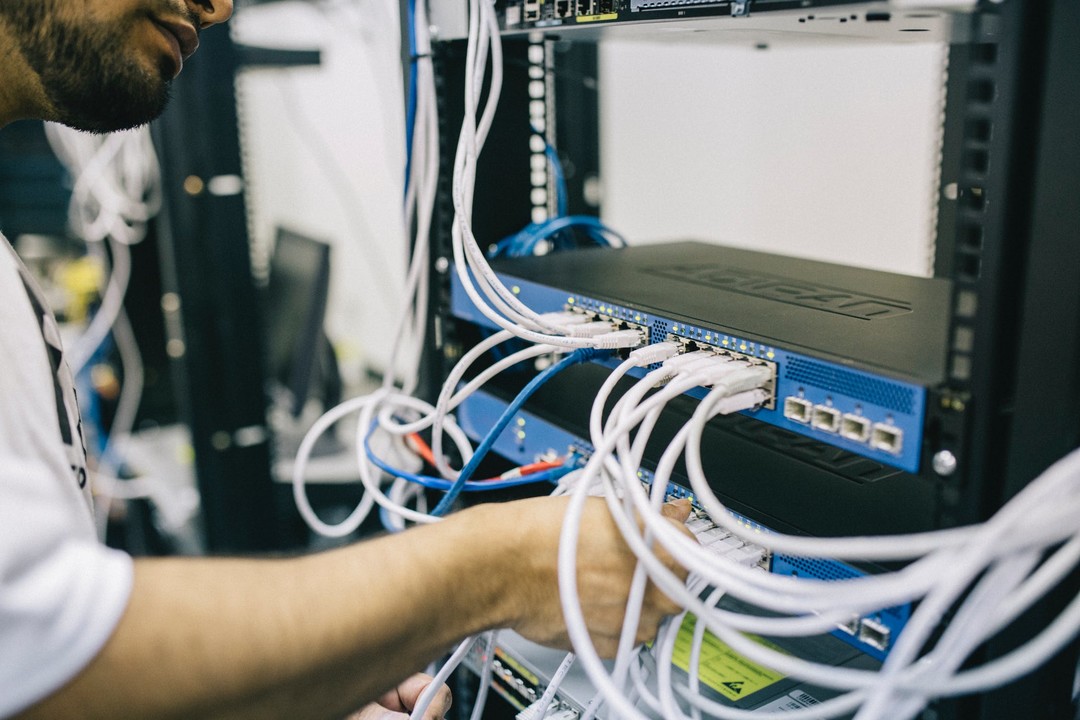
4 Different Types of IT Products, and What They Can Do
Technology is confusing, I get that. I work in technology and every day I learn something new. Every day a new update is released, a new product – hardware or software. A new cyber threat, etc. The ever evolving world of technology has no plans on slowing down anytime soon.
To help you wrap your head around all this technology and all these terms, I decided to write up a brief description of some common business class IT infrastructure products. Now, obviously this list only contains a few of the major ones. It would be way too long of an article for me to write up every single piece of technology.
If there is something I missed, or something you’re not sure about, don’t be afraid to send me a message to ask for some clarification!
Switches
Switches are useful because they essentially allow you to have multiple things running on the same internet, and provide the ability for you to control how much internet certain things use etc. You can think of a switch as almost being like a prism, where a single white light comes in and a rainbow of multiple lights come out. A switch will take the incoming internet traffic that your building has, and it will appropriately allocate internet to devices. This will be used to section off parts of the internet for:
- Security Cameras
- Wi-Fi
- Computers Hardwired into the Internet
- Alarm systems
- VoIP Phones, etc.
Anything that runs off the internet can be ran through a switch. Switches come in all shapes and sizes, so you can really customize your infrastructure to suite your needs best.
Firewall
A firewall is incredibly useful for all businesses (and we recommend them to every one of our clients). Not only does a firewall provide you with basic cybersecurity, but it also allows you to block certain websites.
You can think of a firewall like The Great Wall of China – it was built to keep the Mongolian Army out of China. A firewall is built to keep hackers and viruses out of your work. A firewall is like your first line of defense for your internet. This will replace your basic Bell internet (or whoever your internet provider is) router that you use.
Additionally, a firewall comes with the option to restrict internet activity. So if you’re having a problem with your staff watching movies, or play games, etc., at work, you can block those websites.
These devices also come in all shapes and sizes and their price is heavily influenced by the number of users on the internet. They can range from as small as 5 people up to 1000 + people.
Access Point
An access point is a simple device that turns your buildings wired internet connection into Wi-Fi. For example, you can place an access point on the wall of your client lounge, lobby, waiting room, etc. The devices are similar in size and shape to a smoke detector, so it won’t be too intrusive looking. This way you can run a secure internet cable from the switch to the access point, and provide your clients with Wi-Fi (which can be secured using the firewall).
Server
A server can be thought of like the brain of your office infrastructure. A server is a more powerful computer that has a special version of an operating system (OS) installed on it. A server acts like a central storage and communication unit that allows all the other computers and technology in your office to communicate with it, and each other.
While turning a computer into a server is an easy solution for smaller business, larger businesses should opt for a rack-mounted server. These devices are specifically designed for this purpose, and come with hardware specifically designed for server functionality.
There are also many different types of servers, such as file servers, mail servers, exchange servers, etc. Each server is outfitted with software specifically designed for the intended function of the server itself.
Servers are an incredibly useful tool for any business in any vertical. Not only do they allow all employees a central location to store and share their data, but servers can also add a layer of security to your communication. Having computer ‘A’ communication with computer ‘B’ through the server is a lot more secure than using an open LAN connection.
These devices are all great, and all have their place in the business world. Especially in today’s climate – technology is not going to disappear any time soon. As always, MicroAge is more than willing to help find the perfect tools for you, and we can help set it all up too!